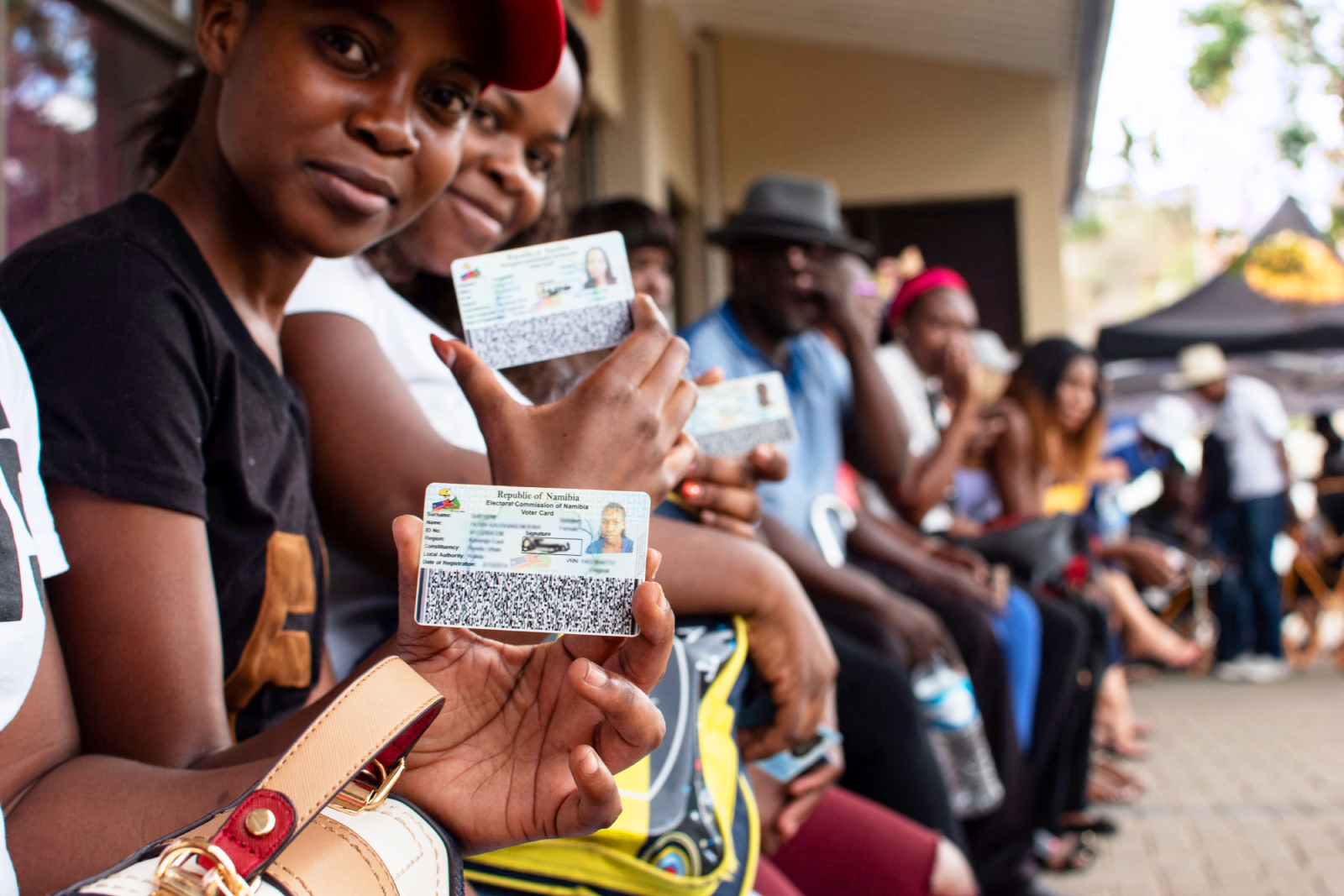One of the most intriguing elections on the continent in 2024 will be in Namibia. The country will be electing a new president following the death in office of President Hage Geingob, who was to step down after his second and final constitutionally mandated term in November.
The South West Africa People’s Organization (SWAPO) standard-bearer will be Vice President Netumbo Nandi-Ndaitwah, who will be SWAPO’s first female presidential candidate.
Competitive results reflect the natural evolution of a healthy multiparty system.
The leading contender is expected to be Panduleni Itula who earned 30 percent of the vote in the 2019 election, the highest opposition result in a presidential election. He is leading the Independent Patriots for Change party. Job Amupanda (leader of the Affirmative Repositioning party) and Ally Angula, an independent candidate backed by three parties with no seats in parliament, are other top contenders.
Notably, three of the six candidates expected to draw the most votes are women.
While SWAPO has won every previous presidential election, the margins have been decreasing. In 2019, Geingob won with 56 percent of the vote. This compares to the 76 percent he received when he first ran in 2015. SWAPO has also seen declining vote tallies in provincial and legislative elections where the party has dipped below its two-thirds majority, and opposition parties now control the three most important economic centers of Windhoek, Walvis Bay, and Swakopmund.
While the common narrative is that this trend reflects SWAPO’s declining popularity and concerns over growing patronage, these more competitive results also reflect the natural evolution of a healthy multiparty system. Namibia’s opposition parties, many of which are spin-offs from SWAPO, remain relatively weak and underfunded. Still, they have been building their capacity and organizational outreach. Moreover, the polity is changing with a growing share of urban voters and those who are “born free” (i.e., after independence in 1990). Their attitude toward SWAPO and its liberation credentials are naturally different than that of older generations.

Namibians wait to vote at a polling station during Namibian presidential and parliamentary elections on November 27, 2019, in Windhoek. (Photo: AFP/Hildegard Titus)
Namibia’s increasingly competitive multiparty system presents an opportunity for innovation and democratic self-correction, creating incentives for all parties to demonstrate agility and public responsiveness. These developments can help Namibia avoid the perceived entitlement, sclerosis, and corruption that can become endemic in entrenched dominant-party systems.
The Namibia election is also noteworthy for its openness and integrity. The electoral environment supports freedom of assembly and speech for all parties. This process is overseen by the Electoral Commission of Namibia (ECN) which, though imperfect, is seen as impartial and focused on the smooth implementation of the election. The ECN has in the past referred to the Electoral Court irregularities raised by opposition parties.
Namibia’s judiciary is also generally considered autonomous from political influence. This is illustrated in instances where the Supreme Court has taken up cases brought by the opposition and ruled against positions taken by the ECN.
Namibia is one of Africa’s most open environments for respecting press freedoms, contributing to more transparency and government accountability.
Namibia’s Anti-Corruption Commission (ACC) has pursued cases against senior officials, including six former ministers as part of the so-called “fishrot” scandal involving preferential access to Namibian waters by an Icelandic fishing company. Critics argue that the ACC could be more aggressive, however.
Namibia has been an innovator on maritime security issues.
Given the importance of fisheries to the economy and livelihoods of this country with a 1,600 km coastline, Namibia has been an innovator on maritime security issues. Estimates are that Namibia loses 400 tons of fish to illegal, unregulated, and underreported (IUU) fishing each year—mostly to Chinese fishing vessels. As part of the Agreement on Port State Measures, Namibia is conducting joint patrols with neighboring countries. In the effort to step up surveillance and protection of its maritime resources, Namibia has cooperated with a consortium of private sector, academic, and nongovernmental organizations. The implementation of efforts to protect Namibia’s fisheries will be an important campaign issue in 2024.
From managing its maritime space to strengthening its multiparty system while retaining its reputation for transparency, there will be no shortage of issues to watch in Namibia’s 2024 elections. On each front, Namibia will have the opportunity to continue playing its norms-setting role for the continent.


 Namibia: November 27
Namibia: November 27